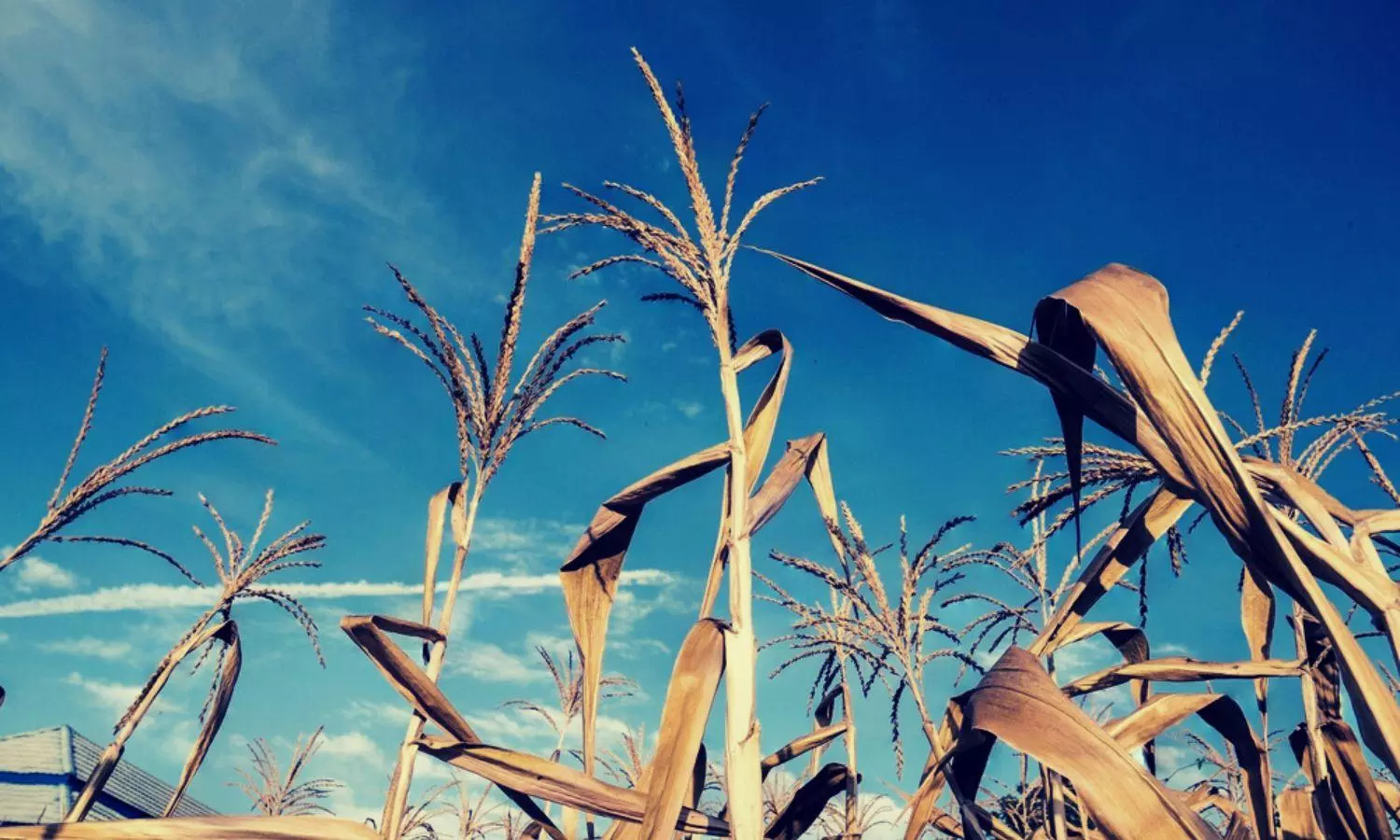Scorching heatwaves and extreme temperatures unleash havoc on Indian agriculture
Explore the grim effects of Climate Change and its unnatural phenomenon on crops and livelihoods
- By Natasha KitturLoading...
- | 2 Jun 2023 7:00 PM IST
 X
X
Heatwaves have become an increasingly alarming phenomenon in recent years, and their impact on agriculture is a matter of great concern. India, an agrarian nation with about two-thirds of the population and 19% of the GDP dependent on its agricultural sector, is particularly vulnerable to the adverse effects of heatwaves. Climate Change has been a topic of discussion for quite a while now and while the citizens of the world are attempting to correct and reverse the ill effects of global warming, we still seem to fall short in our efforts. This article aims to explore the devastating consequences of heatwaves on Indian agriculture and what could possibly be the outcome of this natural phenonmenon.
Rising temperatures and extreme weather events
India experienced extreme heatwaves during the years 2021 and 2022, with record-breaking temperatures across various regions. According to the India Meteorological Department (IMD), several states witnessed prolonged heatwave conditions, resulting in elevated temperatures and prolonged dry spells. Such extreme weather events disrupt the delicate balance necessary for crop growth and productivity.
Decline in crop yield
The impact of heatwaves on agriculture manifests firstly and primarily through a decline in crop yield. High temperatures, coupled with moisture stress (a phenomenon where the moisture levels in plants are below than the required amount, owing to high temperatures), adversely affect the growth and development of crops and vegetation. The scorching heat speeds up the rate of evaporation, leading to water scarcity and inadequate irrigation, further exacerbating the stress on crops.
Wheat and rice, two staple crops in India, are particularly susceptible to heat stress. Rising temperatures during critical growth stages can lead to reduced grain size, poor grain filling, and inadvertently lower yields. In 2021, several wheat-growing states, including Punjab and Haryana experienced heatwaves, resulting in yield losses and compromising food security.Scorching Heatwaves Unleash Havoc on Indian Agriculture: A Grim Tale of Devastated Crops and Shattered Livelihoods
Reduced water availability
Needless to say the unnatural rise in temperatures exacerbate the water crisis not just in agriculture but across all sectors. The frequent heatwaves contribute to the depletion of water sources like rivers, lakes and groundwater levels. A study by the Indian Council of Agricultural Research (ICAR) highlights that prolonged heatwaves significantly impact water availability for irrigation, with a subsequent decline in crop productivity.
Increased pest and disease pressure
Heatwaves create favorable conditions for the proliferation of pests and diseases, further accelerating the challenges faced by farmers. Pests such as aphids (small bugs that feed on plant sap), mites, and bollworms (moth caterpillars) thrive in hot and dry conditions, causing significant damage to crops. The stress imposed by heatwaves weakens the plants' natural defense mechanisms, making them more susceptible to various diseases.
Economic implications
The impact of heatwaves extends beyond the agricultural sector, affecting the overall economy, especially given the fact that we heavily depend on our agricultural sector for employment, income and survival. Reduced crop yields lead to higher food prices and increased production costs, affecting both farmers and consumers. The loss of agricultural income and livelihood opportunities further amplifies the socio-economic distress in rural communities.
A sliver lining in the clouds?
To mitigate the adverse effects of heatwaves on agriculture, the Indian government has undertaken several initiatives. These include promoting climate-resilient farming practices such as crop diversification, conservation agriculture, and improved water management techniques. Investments in research and development for heat-tolerant crop varieties and early warning systems are also crucial for building resilience.
While the impact of heatwaves on agriculture in India has been profound, causing significant damage to crops, depleting water resources, and increasing pest and disease pressure, these events highlight the urgent need for sustainable adaptation and strategies to safeguard this sector. Collaborative efforts from governments, research institutions and farmers are vital to developing resilient agricultural practices and ensuring food security in the face of changing and extreme climatic conditions.

Natasha Kittur
Natasha Kittur is an aspiring writer. Her love for anything with cheese and spice is profound, but a white sauce pasta always tops her list. In her free time you will catch her reading or watching crime books and shows or go on and on about psychological experiments and theories. She aims to write a book in the fictional genre someday.


